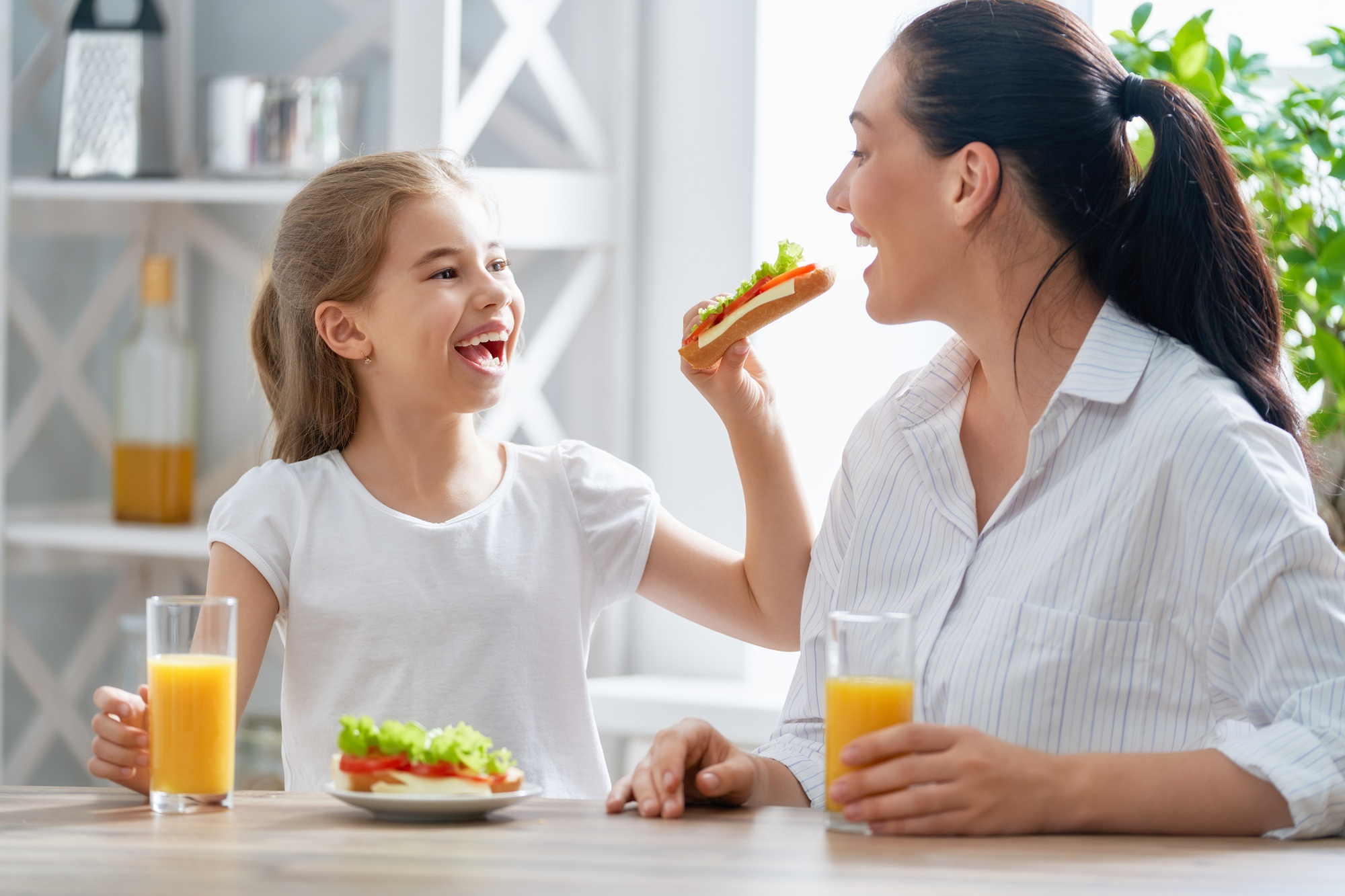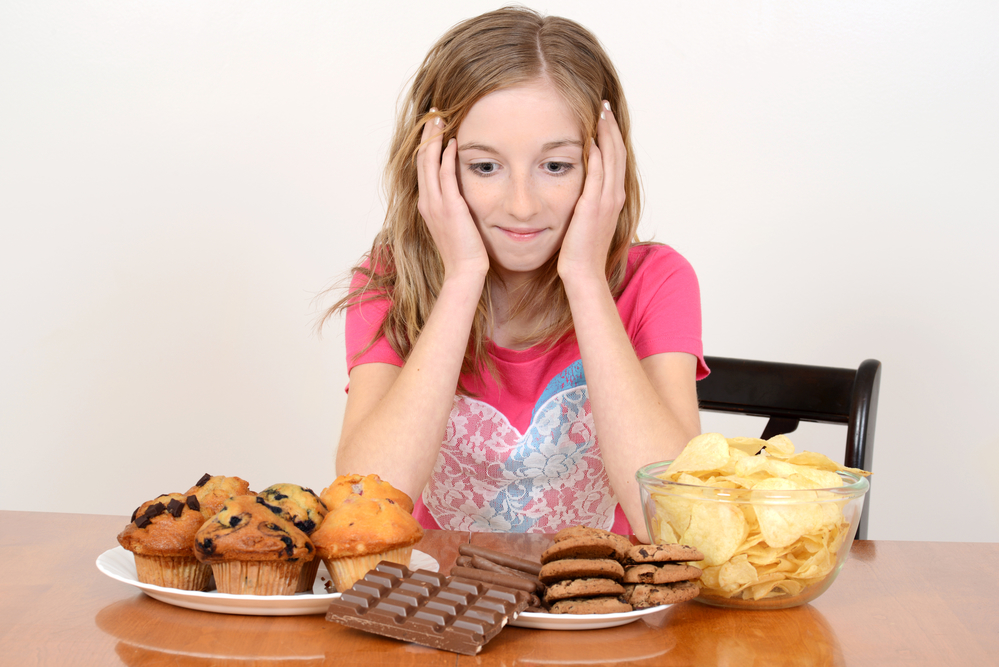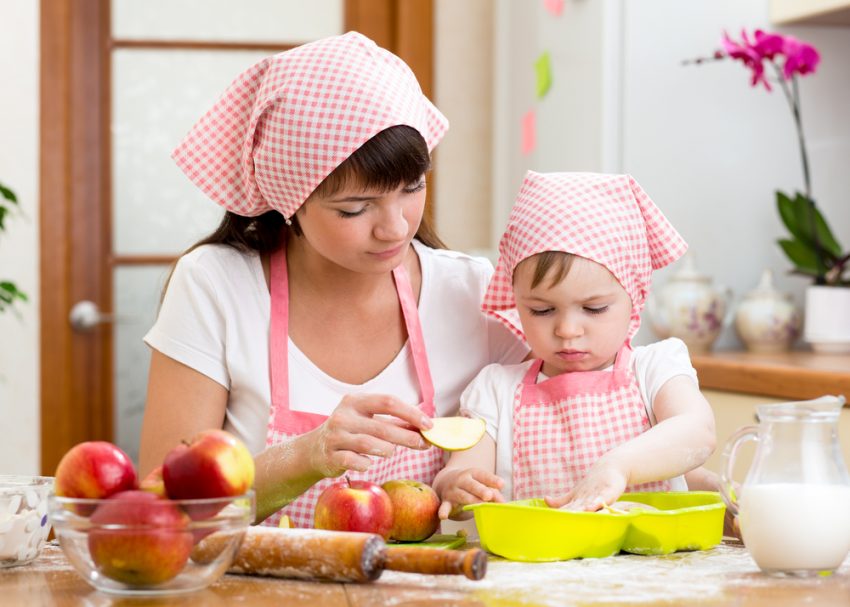Helping your child have a positive body image begins so much earlier than you think. Babies learn through watching, and well before they can talk, they have already absorbed so much information about the world around them. Particularly about their parents. Unsurprisingly then, the way they feel about their bodies, begins with you. They see how you look at your reflection in the mirror, they listen to what you say about your body, and they hear what you say about other people’s bodies. Taking stock of how you feel about your own body is the first step to helping your child with their body image. When you really think about it, it is quite unlikely that your child will learn to feel good about their own bodies, if we are caught up in criticising our own or constantly in various diets. When you look in the mirror, practice talking positively about aspects of your body, for example ‘my legs are so strong’. Or comment on how much you love the colours or patterns of the clothes you wear and how you feel in them. It might feel foreign at first, but it can have a big impact on their body image, and moreover change your own.
When it comes to eating, small children are watching carefully too. They hear what you say about food, and comments like ‘I was so naughty and had dessert’ begins the association between guilt and food that in time, is likely to be hard for them to shake. Likewise they pick up whether exercise is about having fun, sleeping well and improving your mood, or if it is something that you ‘should do’ to ‘make up’ for eating so much over the weekend. The best way to create positive messages about food and exercise then, is to start with your own behaviour. Try not to comment on other people’s bodies or buy magazines that have ‘weight loss success stories’ splashed on the cover. It sends a powerful message about what is important to you and how valued physical appearance is. Labelling food as ‘sometimes’ or ‘everyday’ rather than ‘good’ or ‘bad’ will also help.
Toddlers and teens are both obsessed with control, and the biggest battles between parents and young children tend to be over clothing, food, sleep and the toilet. They are the few areas in which children have a lot of control. The best way to manage these ‘battles’ is to avoid them all together. At the dinner table, this looks like having ‘take it or leave it energy’. Unless you have genuine concerns about your child’s food intake (for which you should see your GP), it is best to place the food on the table and let go of whatever happens next! You get to decide what to put on the table, while your child gets to decide how much they will eat. When we try to convince our children to eat more, they often feel almost compelled to rebel. It also stops them from developing intuitive eating where they listen to their own bodies hunger cues. Try to say ‘well done on listening to your body. It looks like you have had enough’, rather than ‘come on, just one more bite’. If they have taken a break while eating, encourage them to tune into their body and ask ‘what does your body say? Do you feel full or would you like more?’. Being relaxed, and preferably eating as a family with no distractions, is the best way to create a tension free, enjoyable and social meal time.
It is normal for children to be sceptical about new foods. Back in our cave man days, it did not pay for us to simply eat anything we found, and so we learned to smell, touch, and lick new foods before we tucked in. Small children go through the same process. Some foods will be an instant hit, but most times they will need to be exposed to that new food (and ‘play’ with it) a bunch of times before it is deemed ‘safe’ enough to eat. When we force our children to try new foods or have ‘just one bite’, they learn that experimentation is not relaxed and fun, and they are much less likely to want to try new foods again in the future. A popular option in our house is the ‘no thank you’ bowl. It takes the pressure off the child and it means we don’t get into the all too common battle of trying to make our child ‘just leave it’ on their plate. Even though we are conscious to only serve small portions of food, and to always include a ‘safe’ food our child usually enjoys, sometimes ALL of the food ends up in the ‘no thank you’ bowl. When this happens, breathe! This is normal and the more relaxed you are, the less likely that it will end in tears (your and theirs!).
When the day comes that your child says something negative about their body, breathe. Unfortunately it is a completely normal part of growing up. Although we are tempted to argue or deny what they say, the best things we can do is simply be there for them. For example, if your child said ‘I am so ugly’, rather than saying ‘No you’re not!’, try saying ‘oh, you’re not feeling so great about yourself right now? That sounds tough. Tell me more’. Your empathy and curiosity is much more likely to build a better body image than denying that there is a problem and unintentionally leaving your child alone with their feelings.
Most parents will give their children compliments like ‘you are so beautiful’, and that is ok, providing it is not all that we notice. If we focus predominantly on appearance, our children will presume we place a lot of importance on their bodies and it will become hyper important to strive for thinness, or to rebel against us! Commenting on who your child is and the wonderful attributes they have is key. Saying things like ‘I noticed that you gave your brother a turn then, you are so kind’ or ‘I love how you speak your mind and tell me how you are feeling’ are good alternatives. Giving your child plenty of choices whenever possible, asking them lots of questions, and spending time with them are great ways to show that you care about more than how they look. It is one part of them, but we want to show them that it is only a small part of them. Of course it helps if we genuinely feel the same way about ourselves.
In summary, it is most likely that the biggest influence on your child’s body image will be the way you feel about your own body. Change your story and you will change theirs too.

Paige is a psychologist and mum of two on a mission to help women really enjoy parenting babies and toddlers, without getting lost themselves. She runs a private practice in Melbourne and runs online groups for women who want to have the best possible relationship with themselves, their children and their partners. Paige loves carbs, reading, broccolini and running, mostly for a sense of freedom during lockdown.









